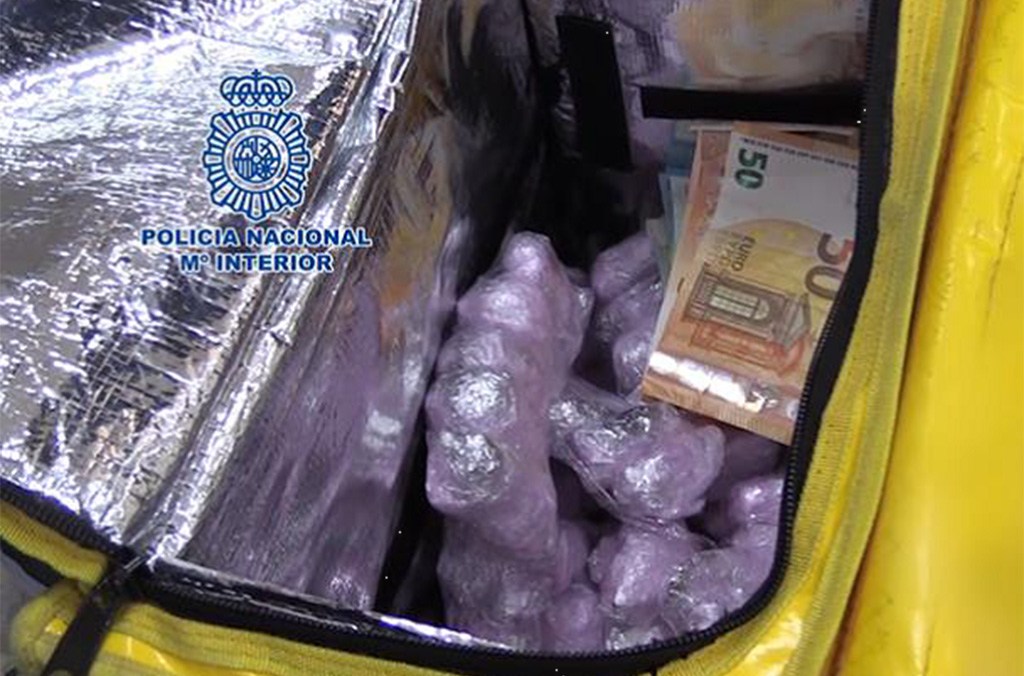Drugs dealers are using the cover of food delivery services to circumvent lockdown measures and carry on their trade during confinement, Interpol has warned.
The international police organisation has already received reports of arrests of drugs couriers posing as food delivery workers in the United Kingdom, Ireland, Malaysia and Spain, and the practice is likely to be more widespread in the transport of cocaine, marijuana, ketamine and ecstasy.
This month, police in Spain arrested seven men dressed as food delivery drivers in Alicante and Valencia, delivering cocaine and marijuana by bicycle, motorcycle and car. The drugs were concealed in the false bottom of a food delivery backpack.
In Ireland, police recovered 8kg of cocaine and two handguns inside pizza boxes.
The lockdown measures taken in different countries, including Belgium, have seen the drugs trade moving off the street because of curfew. Instead of users finding their dealer in a park or on a street corner, it is becoming more common for a purchase to be organised by online message, payment made online and the drugs delivered to the user’s address.
Food delivery is the perfect cover for delivering goods and taking cash. In addition, the closure of restaurants has increased demand for delivery services.
“Delivery riders may be complicit or unwitting links in drug transportation,” the organisation said. “In cases brought to Interpol’s attention, suspects were sometimes falsely disguised as food delivery drivers. At other times, legitimate food deliver drivers knowingly and willingly delivered drugs on behalf of criminal organisations for financial gain.”
Legitimate food delivery drivers have also been used as unwitting drug mules.
“In one Malaysian case, a food delivery rider in the Gombak district of Kuala Lumpur contacted police and asked for his food package to be inspected after he became suspicious.
The rider had been tasked with delivering a single order of Indian flatbread yet the parcel weighed approximately 11 kilograms.”
Interpol has now issued a so-called purple notice to its 194 national members, which alerts them to the issue and points them towards further detailed information on the organisation’s secure communications channel.
“As criminals continue to adapt their activities to a world upended by Covid-19, Interpol’s purple notices are essential tools in enabling police around the world to learn from each other’s successes and address shifting crime patterns,” said Stephen Kavanagh, Executive Director of Police Services.
Alan Hope
The Brussels Times

